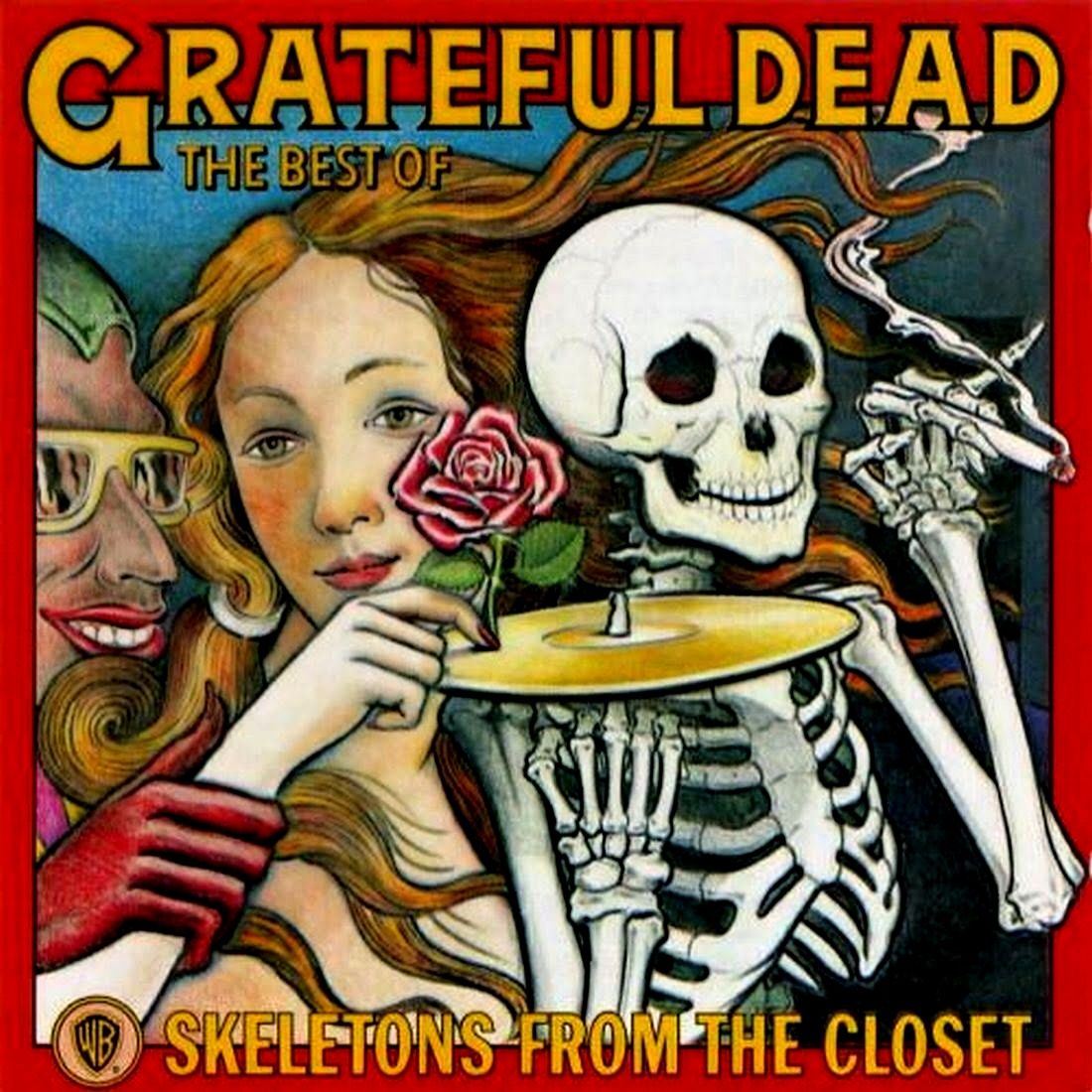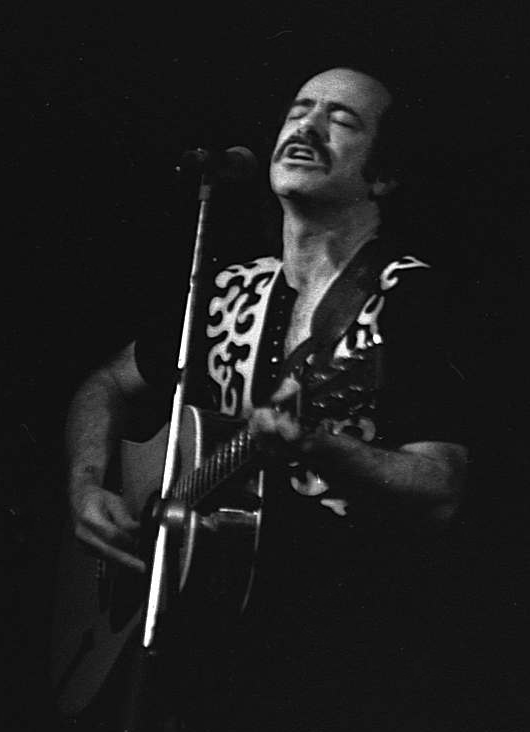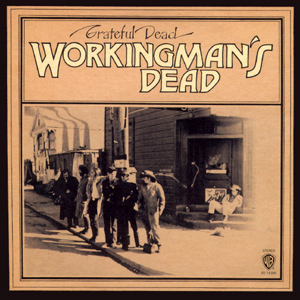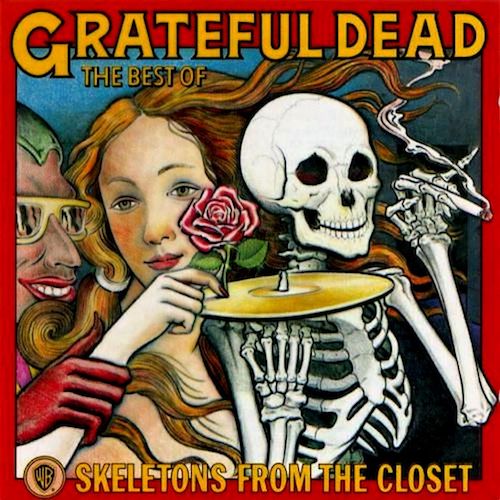
When the Grateful Dead were inducted into the Rock and Roll Hall of Fame in 1994, one of the honorees was Robert Hunter, although he was not a performing member of the band.
Hunter, the lyricist best known for his songwriting collaborations with Jerry Garcia, Bob Weir and others, for such Grateful Dead songs as “Friend of the Devil,” “Sugar Magnolia,” “Uncle John’s Band,” “Dark Star,” “China Cat Sunflower,” “Ripple” and the band’s highest charting single, “Touch of Grey,” was considered an equal member of the band.
He died September 23, 2019, in San Rafael, Calif., at age 78. The family announced his passing but did not note a cause of death.
The family’s statement read, “It is with great sadness we confirm our beloved Robert passed away yesterday night. He died peacefully at home in his bed, surrounded by love. His wife, Maureen, was by his side holding his hand. For his fans that have loved and supported him all these years, take comfort in knowing that his words are all around us, and in that way his is never truly gone. In this time of grief please celebrate him the way you all know how, by being together and listening to the music. Let there be songs to fill the air.”

Hunter, whose primary collaborator in the band was Garcia, made his first contributions to the Grateful Dead beginning in 1967. His earliest songs included “Dark Star” and all of the material on their third LP, 1969’s Aoxomoxoa, considered among their most adventurous of the era. Fueled by LSD and the addition of Hunter’s lyrics, it was among the first albums to embrace 16-track technology. Like its predecessors, it didn’t sell all that well—it took nearly two decades to go gold. Two songs on that album, “China Cat Sunflower” and “St. Stephen,” became staples of the band’s live sets for the duration of their 30-year career.
Hunter, who was born Robert Burns on June 23, 1941, in Arroyo Grande, California, truly blossomed as a lyricist when the band began moving away from psychedelia with its pair of semi-acoustic 1970 albums, Workingman’s Dead and American Beauty. His songs for those LPs included “Friend of the Devil,” “Uncle John’s Band,” “Casey Jones,” “Dire Wolf,” “Cumberland Blues,” “Box of Rain” (with bassist Phil Lesh), “Brokedown Palace,” “Truckin'” and “Ripple.”

Hunter and Garcia remained songwriting partners throughout the band’s full run, although Hunter did work with guitarist/singer Bob Weir and other members of the band. Hunter was partly responsible for such Grateful Dead classics as “Eyes of the World,” “Scarlet Begonias,” “Franklin’s Tower,” “Jack Straw,” “Playing in the Band,” “Sugaree,” “Terrapin Station,” “Touch of Grey” and many others.
The Dead’s other major non-performing songwriter, John Perry Barlow, died in 2018.
Hunter preferred to stay in the shadows, eschewing the spotlight, and was rarely photographed with the Grateful Dead. He did appear on the front cover of Workingman’s Dead, and by the mid-’70s he had begun performing his songs with his own bands and solo. Hunter released his debut solo album, Tales of the Great Rum Runners, in 1974, followed by Tiger Rose and several others. He built a following for his live shows due to his association with the Dead.
Later in his career, Hunter co-wrote a number of songs with Bob Dylan, including “Silvio” and “Ugliest Girl in the World” for 1988’s Dylan release Down in the Groove and all but one song on 2008’s Together Through Life.
Hunter also published several books, including collections of his poetry.
Watch Hunter perform “Ripple” solo in 2013
In 2015, Garcia and Hunter’s collaborative partnership was recognized with an induction into the Songwriters Hall of Fame.
Related: Review of the Long Strange Trip documentary
Grateful Dead drummer Bill Kreutzmann posted the following tribute to Hunter:
“Robert Hunter wrote the soundtrack to my life; his words are with me always. They’ve become part of my daily thought process, world view, philosophy…they are the closest thing I have to prayers. Many of you can say this too and it is something we all share.
“He was the Grateful Dead’s lyricist but he also was the lyricist for my band 7 Walkers. He loved the music and he told me that when he played the record for the first time, he turned it up all the way and then laid down in bed to listen. Halfway through, his speakers came crashing down, almost hitting his head. He liked that. In fact, telling me about it was his form of a compliment.
“When I first formed 7 Walkers, I had called him up asking for a dozen songs and I told him they had to somehow reflect New Orleans or have cajun, creole, voodoo influences. He took that direction to heart and when he returned with words, I asked how he got so many of the details right — stuff you would’ve only known about if you lived in New Orleans. But Bob never lived in New Orleans. He just said, ‘Oh, well, I read a lot.’ This just goes to show that his sorcery skills were no joke.
“I’m bringing up his collaboration with 7 Walkers because it gave me one more time to work with Bob, this time one-on-one. We had one major argument over changing one word, from ‘Seattle’ to ‘New Orleans.’ He was very protective over every single word; he’d fight you over syllables.
“The other time I worked with him outside the Dead was on Jerry’s solo album, Garcia. Hunter was inside the control room, writing lyrics as we played music. ‘The Wheel’ came out of that. ‘Sugaree,’ too. ‘Bird Song.’ ‘Deal!!’ Songs I still play today and that many of us can recite by heart — I know I sure can.
“But there’s always one thing I think of first, and that I keep coming back to, when looking back on our friendship: Bob was by my side for a particular day, seemingly lifetimes ago, that would forever alter my adventure on this planet — my first acid trip. You never forget your first, and Bob was there with me on that journey, complete with us watching the garbage trucks go by in the morning, after being up all night, convinced they were actually aliens or other fantastical things.
“I will always cherish my many wonderful memories of Robert Hunter and I am sad that there won’t be any new ones. I cried when I heard the news and I’ve spent all day reflecting. And all my thoughts lead me to this: Robert Hunter is gone, but his words will live on forever. How many people can we say that about? Not many. He was a rare bird and a gift to us all.
“Wildflower seed on the sand and stone, may the four winds blow him safely home.”
Dead bassist Phil Lesh posted this tribute as well:
“I am heartbroken. Last night we lost Robert Hunter. As much as anyone, he defined in his words what it meant to be the Grateful Dead. His lyrics, ranging from old border ballads to urban legend, western narratives and beyond, brought into sharp focus what was implicit in our music. A case in point is ‘Box of Rain’ – he heard so deeply what my feelings were when I composed the music, feelings I didn’t know I had until I read his lyrics. The lyrics he wrote for Jerry likewise tapped into the very essence of Jerry’s heart and soul – drawing forth the music living there. Significantly, the very first lyric Robert wrote for us was ‘Dark Star,’ which became the definitive GD exploratory vehicle.
So fare thee well, rh, when my time comes I’ll be looking for you and Jer out there in the transitive nightfall of diamonds.
Love,
Phil”
[easy_sign_up title=”Sign up for the Best Classic Bands Newsletter”]


1 Comment
Another one to go through the transitive nightfall of diamonds. Robert, you left songs to fill the air for all of us.